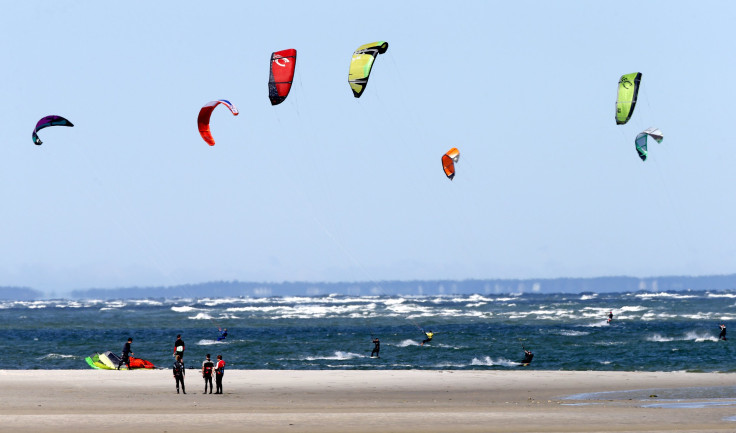Shark Attacks 2017: Cape Cod Sees Increase In Great White Sharks

Great white sharks are headed for Cape Cod, Massachusetts. A multiyear study of the sharks revealed that the sharks in the area have risen in number, the Associated Press reported Sunday.
The study was conducted by the Massachusetts Division of Marine Fisheries and found that the number of sharks had increased significantly over the past couple of years. Eighty sharks were seen and noted in 2014, and in 2016 the count was up to 147. Now, the researchers have tagged 100 sharks to track their locations.
The Division’s senior scientist and resident shark expert, Greg Skomal, said that the team was primarily concerned with how long the sharks stay in any given area, and where they go. With Cape Cod seeing more than five million tourists every year, tracking the sharks to better determine the water safety of the beaches is important.
Read: Reunion Island's Shark Problem Leads To Questions Of Surfer Safety
Skomal said the likelihood of experiencing a shark attack was small, stating that the last fatal shark attack in Massachusetts occurred in 1936. Of course, scattered instances of swimmers and kayakers being bitten or tracked by the sharks have occurred in recent years, but nothing nearly as dangerous or aggressive as the attacks that take place in waters where fatal shark attacks are frequent -- say, in locations like Reunion island.
Great white sharks have been known to migrate to Cape Cod -- warmer waters and an increase in prey are what keep the predators coming back every year, according to National Geographic.
Skomal attributed the rising shark population with the migration of seals, stating that the sharks have followed their prey farther up north. The team had found that there was a higher number of younger sharks, also.
“Last summer we saw greater numbers of smaller sharks, including juveniles, and that tells us that the population is rebuilding,” Skomal told the AP.
Monitoring the Cape Cod beaches will be a high priority for the communities, and beaches will close if there are shark sightings.
© Copyright IBTimes 2024. All rights reserved.












